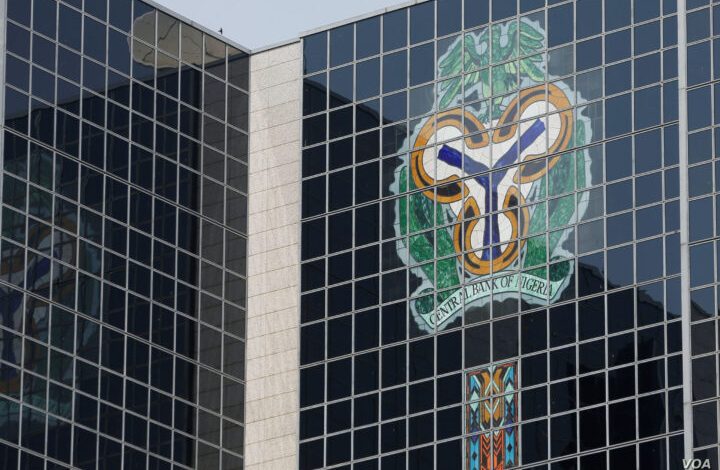
The Nigerian Naira continues its tumultuous journey, facing steep declines against the US Dollar despite concerted efforts by the federal government and the Central Bank of Nigeria (CBN) to stem the free fall.
The persistent depreciation of the Naira, with exchange rates exceeding N1,500 and above N1,800 against the Dollar at the official and parallel markets respectively, underscores the profound challenges confronting Nigeria’s economy.
Despite numerous interventions, the currency’s downward spiral persists, exacerbating economic woes and plunging millions into hardship due to soaring commodity prices.
CBN Interventions/Cash Injections
In a bid to enhance liquidity and restore confidence in the forex market, the CBN embarked on a series of measures, including injecting millions of dollars into banks. Despite injecting substantial sums in 2022 and 2023, the Naira’s value continued to erode, signaling the limited effectiveness of monetary interventions alone.
In order to lessen the pressure on the country’s exchange rate and attract investors, the CBN in 2022, injected the sum of $17.81bn into the inter-bank foreign exchange market in addition to the $16.55bn it committed in 2021.
In January 2024, the Apex Bank injected about $61.64 million to offset debts owed to foreign airlines through various banks. This was in its bid to clear the backlog of pending matured foreign exchange (FX) in Deposit Money Banks (DMBs).
The CBN had also paid approximately $2billion as part of efforts to clear the backlog of outstanding foreign exchange liabilities across various sectors. The apex bank also infused $500 million into the forex market in January 2024, to “address fundamental issues hindering the effective operation of the Nigerian FX markets to boost investor confidence and attract foreign investment,” said Hakama Sidi-Ali, Acting Director of the Corporate Communications Department at the CBN.
President Bola Ahmed Tinubu recently announced plans to raise $10 billion to bolster foreign exchange liquidity. However, doubts persist regarding the efficacy of such endeavors in light of previous failed interventions.
Raids on Bureau de Change Offices
The government’s crackdown on Bureau de Change (BDC) operators, spearheaded by the Economic and Financial Crimes Commission (EFCC), aimed to curb currency speculation and stabilize the Naira.
In July, 2022, the operatives of the Economic and Financial Crimes Commission (EFCC) stormed a base of Bureau De Change operators in Wuse Zone 4 in Abuja, to dislodge speculators who were reportedly mopping up foreign currencies and contributing to depreciation of the naira.
In November 2022, the anti-graft agency launched another raid on Wapa forex market in Kano where it arrested at least eight BDC operators. But few days after the raid, as confirmed by some of the marketers, the dollar rose against the naira at the market.
In August 2023, the Joint Monitoring Task Force and the Aviation Security Crime Investigation and Intelligence Unit of the Federal Airports Authority of Nigeria arrested 21 persons among whom were “illegal foreign exchange dealers.” In what appeared to be a renewed effort to stabilise the naira, the EFCC again clamped down on unlicensed BDC operators in Abuja, Kano and Lagos on Tuesday.
On Monday, EFCC Operatives raided the popular Zone 4 area where most BDC Operators have their offices and arrested several. Despite these efforts, recent intelligence reports indicate ongoing illicit activities within the forex market, suggesting that enforcement actions have fallen short of their intended impact.
CBN’s Warnings to Speculators
The CBN’s warnings to speculators, threatening significant losses once unveiled strategies are implemented, have failed to deter speculative activities. While the Naira briefly appreciated in October 2023, subsequent fluctuations underscore the currency’s vulnerability to external pressures.
NNPC’s Loan from AFREXIM
The Nigerian National Petroleum Company Limited (NNPCL) sought a $3 billion Emergency Crude Repayment Loan from the African Export-Import Bank (AFREXIM) to support currency stabilization efforts. While initially leading to a temporary appreciation of the Naira, delays in finalizing the loan agreement contributed to renewed depreciation, highlighting the challenges of sustaining currency stability.
Expert Perspectives
Economists and think tanks have expressed skepticism about the efficacy of current approaches to addressing the Naira crisis. Dr. Oluseye Ajuwon contends that crackdowns on BDC operators may exacerbate the problem by driving currency transactions underground, while advocating for measures to alleviate scarcity rather than exacerbating it.
Agora Policy’s recommendation for a comprehensive economic plan underscores the need for a multifaceted approach to currency stabilization. Emphasizing the role of exchange rate policies in promoting export diversification and attracting capital flows, the proposal aligns with broader objectives of fostering sustainable economic development.
Conclusion
Nigeria’s ongoing struggle to stabilize the Naira amidst economic turmoil highlights the complex challenges facing the country. Despite concerted efforts by the government and the CBN, the currency’s persistent depreciation underscores the need for a comprehensive and coordinated approach to address underlying structural issues. As Nigeria navigates the complexities of currency stabilization, the imperative of adopting holistic strategies that promote economic resilience and sustainable growth remains paramount.
